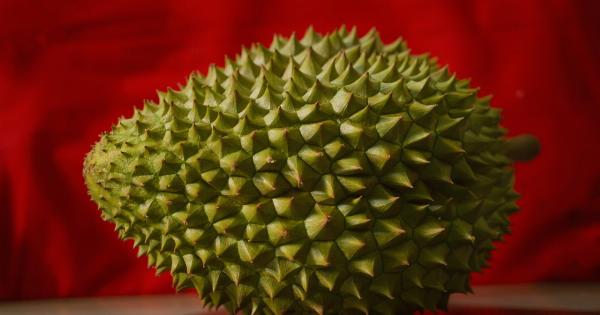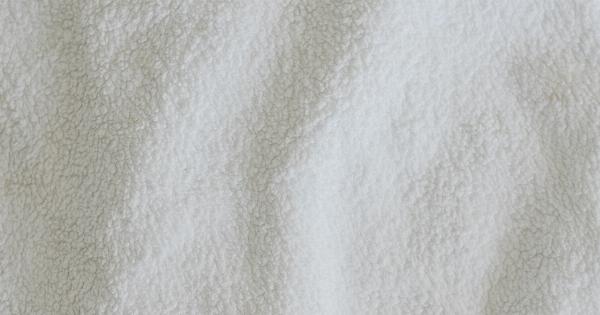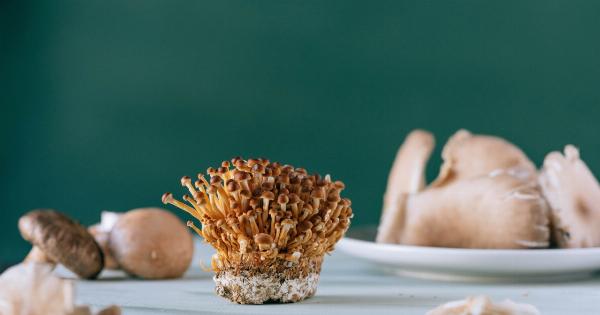Apples are one of the most commonly eaten fruits in the world, but unfortunately they are also one of the most heavily sprayed crops.
While pesticides are necessary to protect apples from pests and diseases, they can also have negative impacts on human health. In this article, we will discuss 30 simple ways to rid your apple of pesticides.
1. Choose organic apples
The most obvious way to avoid pesticides on your apples is to choose organic. Organic apples are grown without synthetic pesticides, herbicides and fertilizers, making them a safer and healthier option.
2. Wash your apples well
Washing your apples is one of the easiest ways to remove pesticides. Use a vegetable brush and some water to scrub the skin of the apple. This will help remove any dirt, wax and chemical residue that may be on the surface of the fruit.
3. Use vinegar and water solution
Mix one part vinegar with three parts water and soak your apples in the solution for 10-15 minutes. This will help remove any surface pesticides and bacteria. Rinse the apples in cold water and dry them before eating.
4. Use baking soda and water solution
Mix one teaspoon of baking soda with two cups of water and soak your apples in the solution for 15 minutes. This will help remove any surface pesticides and dirt. Rinse the apples in cold water and dry them before eating.
5. Use lemon juice and water solution
Mix one tablespoon of lemon juice with one cup of water and soak your apples in the solution for 10-15 minutes. This will help remove any surface pesticides and bacteria. Rinse the apples in cold water and dry them before eating.
6. Use salt water solution
Mix one tablespoon of salt with one cup of water and soak your apples in the solution for 10-15 minutes. This will help remove any surface pesticides and bacteria. Rinse the apples in cold water and dry them before eating.
7. Peel your apples
Peeling your apples will remove most of the pesticide residue, but this also removes nutrients and fiber. If you choose to peel your apples, make sure to wash them well first.
8. Eat only the flesh of the apple
Most of the pesticide residue is found on the skin of the apple, so eating only the flesh of the apple will reduce your exposure to pesticides. However, this method also removes most of the nutrients and fiber found in the apple skin.
9. Eat only organic apple skin
If you want to eat the skin of your apple, choose organic apples. Organic apples are not sprayed with synthetic pesticides, making the skin safer to eat.
10. Choose apples with thick skin
Apples with thick skin have a protective layer that helps prevent pesticides from penetrating the fruit. Choose apples with thicker skin to reduce your exposure to pesticides.
11. Rinse apples under running water
Rinsing your apples under running water will remove some of the pesticide residue. Rub the skin of the fruit with your fingers to remove any dirt or wax. Rinse the apple well and dry it before eating.
12. Soak apples in hot water
Soak your apples in hot water for 5-10 minutes to remove some of the pesticide residue. The hot water will help dissolve any wax or chemical residue on the surface of the fruit. Rinse the apple in cold water and dry it before eating.
13. Use a commercial produce wash
There are many commercial produce washes available that can help remove pesticides and bacteria from your apples. Follow the instructions on the package for best results.
14. Wash apples before cutting
Wash your apples before cutting them to prevent any dirt or bacteria on the skin from contaminating the flesh of the fruit. Rinse the apple well and dry it before cutting.
15. Store apples in the refrigerator
Storing your apples in the refrigerator will help prolong their shelf life and reduce the amount of pesticide residue. Make sure to wash your apples well before eating, even if they have been stored in the refrigerator.
16. Don’t buy bruised or damaged apples
Bruised or damaged apples are more susceptible to pests and diseases, which means they are more likely to be sprayed with pesticides. Choose apples that are firm and smooth to reduce your exposure to pesticides.
17. Don’t buy apples with insect holes
Insect holes may indicate that the apple has been sprayed with pesticides to control pests. Choose apples that are free from insect holes to reduce your exposure to pesticides.
18. Don’t buy apples with mold or rot
Mold and rot indicate that the apple is no longer fresh and may have been sprayed with pesticides to prolong its shelf life. Choose fresh apples to reduce your exposure to pesticides.
19. Don’t buy apples with wax coating
The wax coating on apples can trap pesticides and other chemicals on the surface of the fruit. Choose apples that are free from wax coating to reduce your exposure to pesticides.
20. Choose apples from local farmers
Farmers who sell their produce locally are more likely to use fewer pesticides than large commercial growers. Choose apples from local farmers to reduce your exposure to pesticides.
21. Grow your own apples
Growing your own apples is the best way to ensure that your fruit is free from pesticides and other chemicals. Choose organic seeds or seedlings to grow your own apples without synthetic pesticides.
22. Use natural pest control methods
Use natural pest control methods such as beneficial insects, companion planting and crop rotation to reduce the amount of pesticides needed to grow your apples. These methods can help control pests without the use of synthetic pesticides.
23. Use organic pesticides
If you need to use pesticides on your apple trees, choose organic pesticides. Organic pesticides are made from natural ingredients and are less harmful to humans and the environment than synthetic pesticides.
24. Follow the instructions on pesticide labels
If you choose to use pesticides on your apple trees, make sure to follow the instructions on the label carefully. Using too much pesticide or using it incorrectly can be harmful to humans and the environment.
25. Use pesticides at the right time
Use pesticides at the right time to ensure that they are effective. Using pesticides too early or too late can be a waste of time and money, and can also be harmful to the environment.
26. Use protective clothing and equipment
If you need to use pesticides on your apple trees, make sure to use protective clothing and equipment such as gloves, goggles and a mask. This will help protect you from exposure to the pesticide.
27. Wash your hands after using pesticides
Wash your hands well after using pesticides to avoid contaminating yourself or others. Use soap and water to wash your hands thoroughly.
28. Dispose of pesticide containers properly
Dispose of pesticide containers properly to avoid contaminating the environment. Follow the instructions on the label for proper disposal.
29. Monitor your apple trees regularly
Monitor your apple trees regularly for signs of pests and diseases. Early detection can help prevent the need for excessive pesticide use.
30. Consult with a professional
If you are unsure about how to grow or treat your apple trees, consult with a professional. A horticulturist or agriculture extension agent can provide valuable advice and guidance.
Conclusion
Reducing your exposure to pesticides on your apples is an important step in maintaining a healthy diet. By following these 30 simple ways to rid your apple of pesticides, you can enjoy your apples while protecting yourself and the environment.































